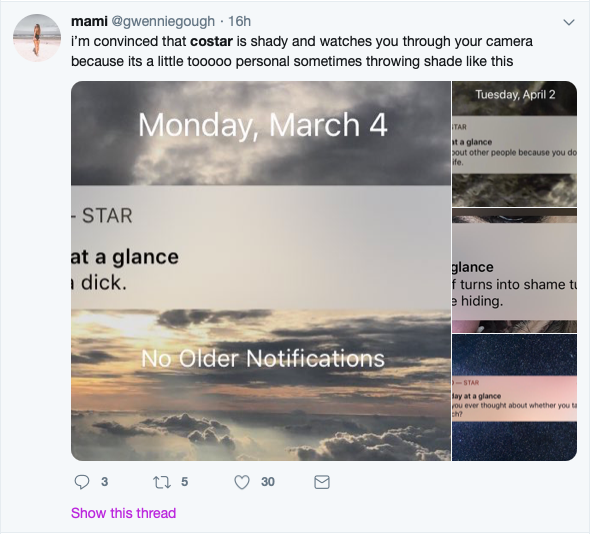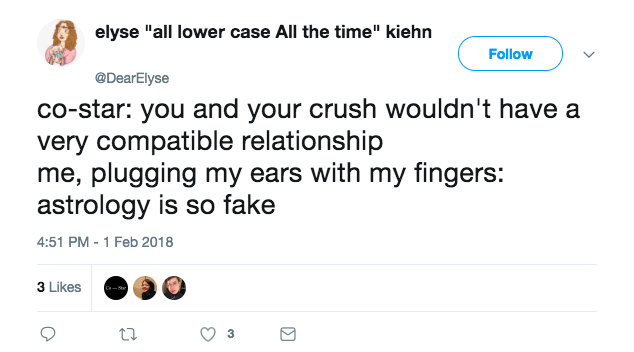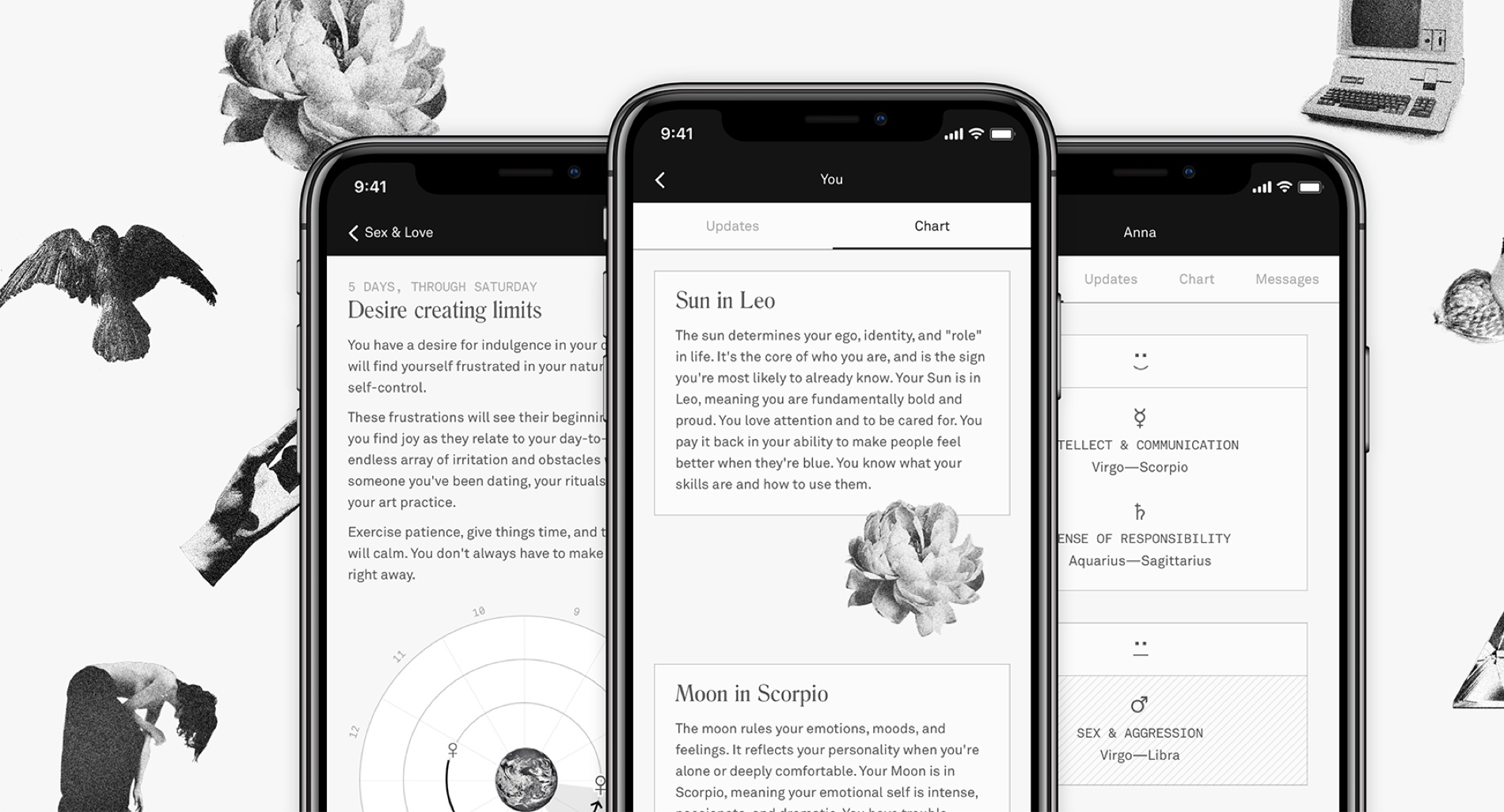Even though it has been around for thousands of years, the popularity of Astrology is going through the roof, especially among Millennials. In a time where life can get stressful, this practice offers a lot of fascination, reassurance, and entertainment. It makes us connect to the nature, the stars, the Universe, and brings us back to a practice born more than 2500 years ago.
Co-Star is the first ever created AI-powered minimal astrology app, which offers an alternative to stress-inducing digital apps. With a simple, sleek design and graceful illustrations, it’s an amusing source of insight and reflection. The magic of Co-Star is how it brings people together, both online and offline, offering a unique social experience. It doesn’t only connect people digitally, but it also makes them socialize in real life. Isn’t it a fantastic facilitator of human interactions?
Just download the app, open it with your friends, and start chatting over it! Besides providing real-time, hyper-personalized horoscopes and birth charts, Co-Star allows you to see compatibility levels with your friends in detail so that you have a deeper and more personal conversation.
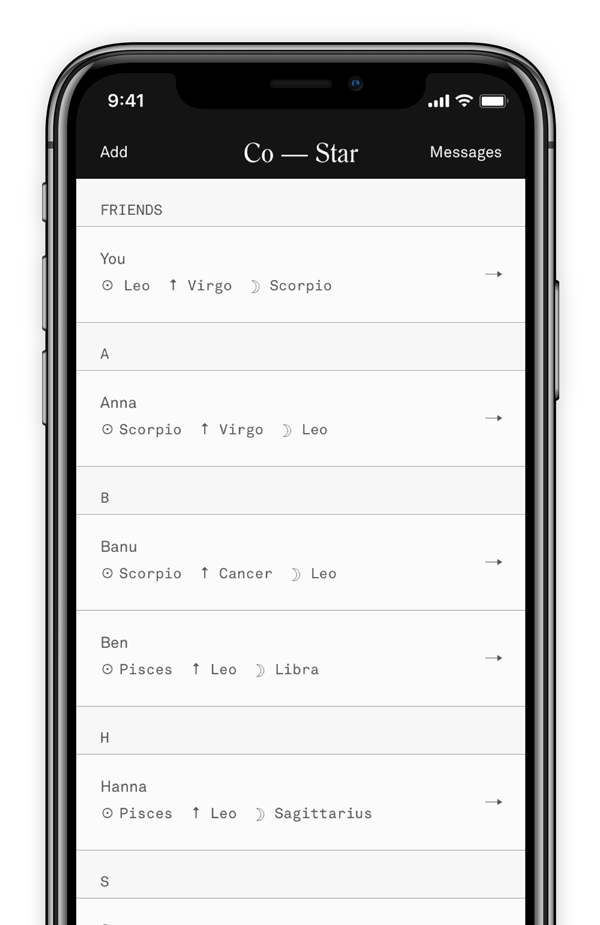
Another feature of Co-Star we love is Day at a Glance, precise dailysuggestions that are written in a fresh, quirky, and sometimes extremely brutal tone. Because of the ruthless honesty of these suggestions, Co-Star has become a phenomenon on Twitter! Daily users are screenshotting these notifications and sharing them as memes, and they are hilarious!
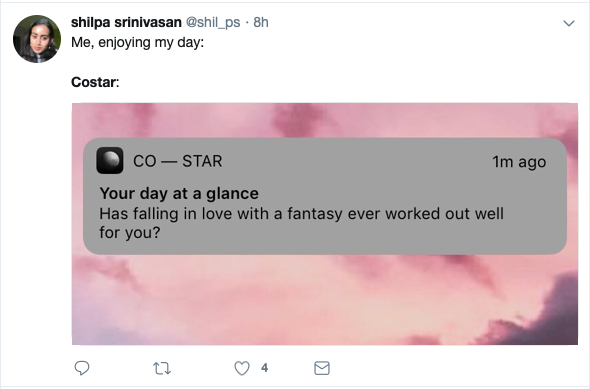
Co-Star only sends one notification per day, saving its users from a notification overload. In an era dominated by technology and digital products, we may often feel overwhelmed by all the attention-stealing clutter, stress-inducing notifications, and addictive time-consuming functions, risking to end up with a ‘tech burnout’. This is not sustainable! We need a more minimal approach in creating digital products, and this is why we think Co-Star is a great example of how to design minimally.
We think that Co-Star handles its daily push notification in a really clever way. Because users get one Day At A Glance notification per day, they don’t get into a vicious circle of addiction that keeps them glued to the screen at all hours. It’s rather a more positive sort of addiction, in which users have to wait until the next day to receive a new notification. In an age where people binge-watch series and binge-listen to podcasts, Co-Star proposes a healthier “addiction” that resembles the one created by flow-TV back in the days.
At Co-Star, they managed to revive one of the oldest and well-liked practices, that is Astrology. This ancient discipline has been around for centuries among different cultures, such as the Babylonians, Mayans, and Chinese, helping people connect with the Universe. Co-Star turned this old tradition into an easily accessible app that encourages people to connect while giving specific information. By providing so many details, it entertains Astrology nerds as well as those who turn to Astrology for fun. Users can find inspiration in a fun and accessible way. This app relieves people from tech overload and fights social isolation! This is why we love it!
At Design Matters 19, we will discuss the theme Minimal Tech, and Andrew Lu, Lead Designer at Co-Star, will be there. Meanwhile, we asked him about his take on design, tech, and digital overload.


What are your favorite examples of other products that do this and why?
Something really exciting about how we’ve seen people use Co-Star is that they open the app and converse over it when they’re actually physically together, like at a bar or over brunch. It feels like an enhancement of “real” life, versus a diversion from it. So I enjoy digital products that provide this kind of experience. One example is Swarm, the check-in app spun out from Foursquare, which I use quite often. I’ve got friends on there and it’s occasionally helped me realize we happen to be visiting the same city for example. The digital world adds to my physical experience, instead of the other way around.
How do you see the designer’s role change in the future?
That’s an interesting question. Well, robots are supposed to make all of us (designers or otherwise) redundant, right? I have no idea if or how that redundancy will really happen, but I do feel like some of the concerns of “product design”, in mobile apps specifically, are going that way. Many conventions in terms of interaction or visual UI design are very codified, such that I think the more interesting questions that remain are in things like brand, strategy, and how your product really operates in context.
Any other thoughts about ‘Minimal Tech’?
I think it’s really timely and relevant! Politicians are calling out big tech, public opinion is turning on its utopian and panacean promises, and yet our tech habits haven’t totally changed — maybe because we don’t yet know what the alternatives could look like. So I’m looking forward to Design Matters and excited to discuss how we can challenge the spaces and mechanisms that gave us tech addiction and social isolation, and even adapt them for the opposite effect: rest, relief, and real connection.
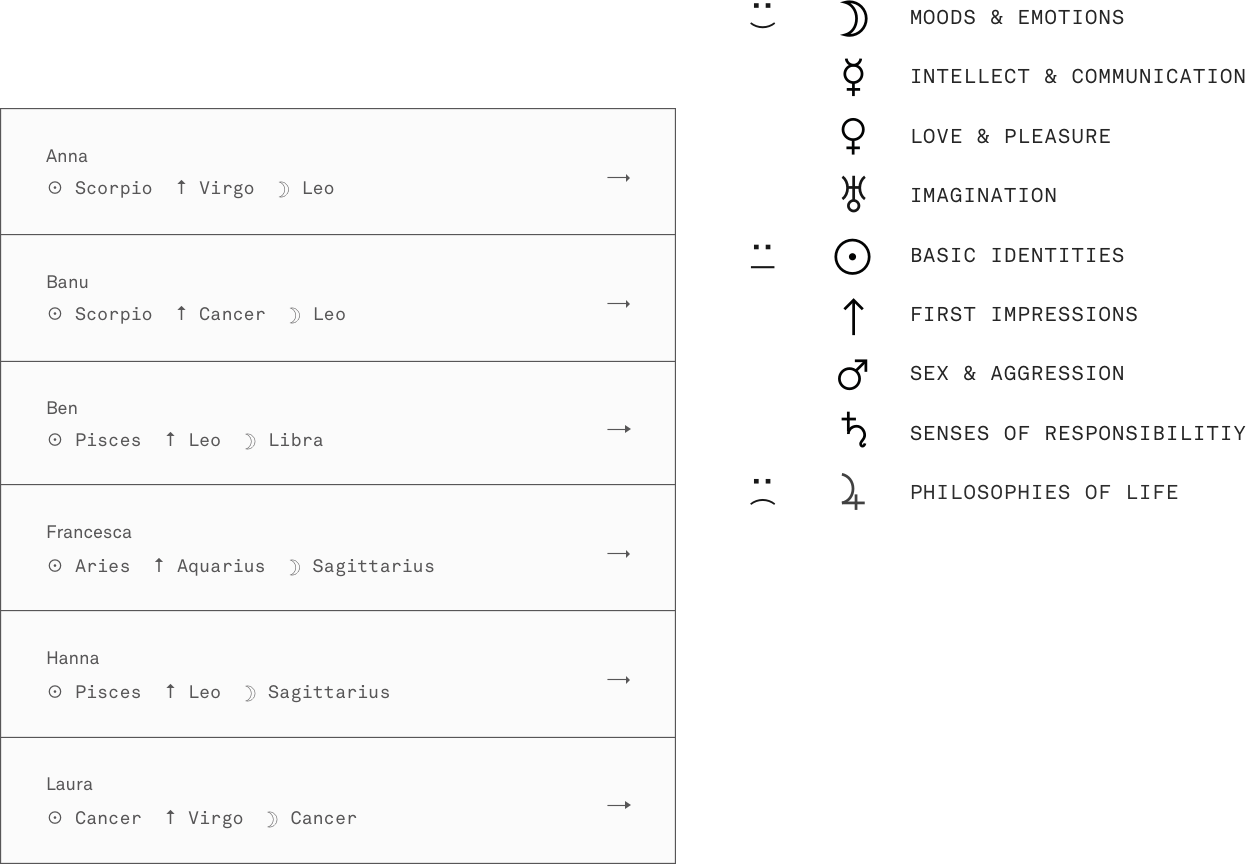
Andrew Lu will be at Design Matters 19 to explain how they translated the complex, spiritual practice of astrology into an approachable, practical tool desgined to better understand how people relate to each other.
Here are more hilarious Tweets about Co-Star’s cut-to-the-chase push notifications. Enjoy!

